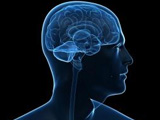|
|
TODAY.AZ / Weird / Interesting
Brain state affects memory recall
15 June 2011 [14:40] - TODAY.AZ
 Lost your keys? Your brain might be in a better state to recall where you put them at some times than at others, according to new research from UC Davis.
Lost your keys? Your brain might be in a better state to recall where you put them at some times than at others, according to new research from UC Davis.A paper describing the work is published June 13 in the journal Proceedings of the National Academy of Sciences.
"It's been assumed that the process of retrieving a memory is cued by an external stimulus," said Charan Ranganath, professor at the UC Davis Center for Neuroscience and Department of Psychology. "But we found that the levels of brain activity before items came up were correlated with memory."
Graduate students Richard Addante and Andrew Watrous; Ranganath; Andrew Yonelinas, professor of psychology at the UC Davis Center for Mind and Brain; and Arne Ekstrom, assistant professor of psychology at the Center for Neuroscience, measured a particular frequency of brainwaves called theta oscillations in the brains of volunteers during a memory test.
Theta waves are associated with a brain that is actively monitoring something, Ranganath said. For example, rats show high theta waves while exploring a maze.
In the memory test, the volunteers had to memorize a series of words with a related context. They later had to recall whether they had seen the word previously and the context in which the word was seen.
High theta waves immediately before being prompted to remember an item were associated with better performance.
The work goes against the assumption that the brain is waiting to react to the external world, Ranganath said. In fact, most of the brain is busy with internal activity that is not related to the outside world -- and when external stimuli come in, they interact with these spontaneous patterns of activity.
It's not clear whether it is possible to deliberately put your brain into a better state for memory recall, Ranganath said. The laboratory is currently investigating that area -- with the hope that it might lead to better treatments for memory loss.
The work was funded by grants from the NIH.
/Science Daily/
URL: http://www.today.az/news/interesting/88245.html
 Print version
Print version
Views: 2187
Connect with us. Get latest news and updates.
See Also
- 06 December 2024 [22:20]
Are scented candles harmful to health? - 23 November 2024 [14:11]
Magnitude 4.5 earthquake hits Azerbaijan's Lachin - 20 November 2024 [23:30]
Launch vehicle with prototype of Starship made its sixth test flight - 27 October 2024 [09:00]
Fuel prices expected to rise in Sweden - 24 October 2024 [19:14]
Turkiye strikes terror targets in Iraq and Syria - 23 October 2024 [23:46]
Kazakhstan supplied almost entire volume of oil planned for 2024 to Germany in 9 months - 23 October 2024 [22:17]
Taiwan reported passage of Chinese Navy aircraft carrier near island - 23 October 2024 [21:50]
Russia remains largest oil supplier to India - 16 October 2024 [17:54]
Gamesummit co-founder shares insights on future of gaming industry in Azerbaijan [EXCLUSIVE] - 12 October 2024 [18:27]
TikTok cuts jobs, turns to AI for content moderation
Most Popular
 President Ilham Aliyev shares post on 20 January tragedy
President Ilham Aliyev shares post on 20 January tragedy
 Chinese Deputy Chairman discusses trade and economic relations with US
Chinese Deputy Chairman discusses trade and economic relations with US
 Do the Armenians have no territorial claims to Azerbaijan?
Do the Armenians have no territorial claims to Azerbaijan?
 Armenians are not afraid of Russia, Armenians are afraid of being left without gas
Armenians are not afraid of Russia, Armenians are afraid of being left without gas
 Ambassador Khazar Ibrahim gratitudes IFC Managing Director on behalf of Azerbaijani leadership for his contributions to COP29
Ambassador Khazar Ibrahim gratitudes IFC Managing Director on behalf of Azerbaijani leadership for his contributions to COP29
 Azerbaijan's Foreign Ministry issues statement on January 20 - National Day of Mourning
Azerbaijan's Foreign Ministry issues statement on January 20 - National Day of Mourning
 Libyan oil sector witnessing continuous recovery, despite major challenges, says NOC head
Libyan oil sector witnessing continuous recovery, despite major challenges, says NOC head
